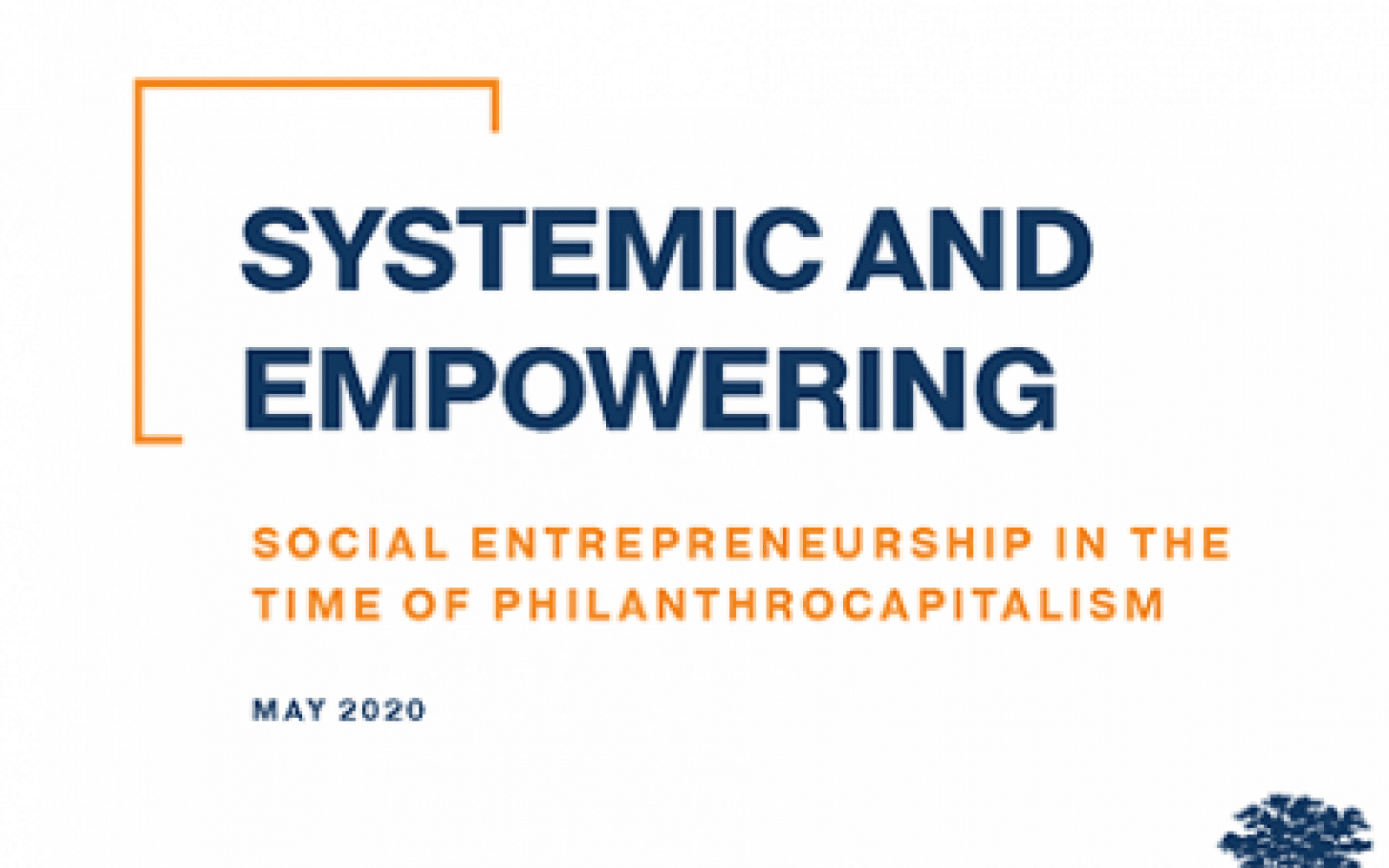Systemic and Empowering. Social Entrepreneurship in the Time of Philanthrocapitalism is the latest report from Ashoka's Learning and Action Center and Globalizer teams. It shows how social entrepreneurs can contribute to meaningful social change in a way that counters common criticisms.
Without diminishing the importance and the relevance of the critical points raised, we highlight practitioners that—through their core work—show how social change can be promoted by private actors in a way that meets critics’ demands for equity and accountability.
The goal of this report is to use these concrete examples to better equip the social sector to address the shortcomings of organizational practices that critics articulate.
As intermediary organizations, practitioners, funders, and philanthropists, we all must reflect on our current practices and the long-term negative impact that some of them can trigger. This report will help you to learn from the best practices of social entrepreneurs and embed them in your own thinking and acting.
Click the DOWNLOAD button in the viewer below (preferred) or click the PDF below to download the full report (least preferred).
Systemic and Empowering - Full Report
The five case studies in this report show how we can:
- Adopt a systemic approach in developing our programs, activities and funding practices;
- Use the power of “everyone a changemaker” as a guiding principle for systems change work;
- Ensure accountability and legitimacy of our work by closely engaging a variety of actors in our fields—citizens, government bodies, non-profits and companies—and making our work and processes as transparent, inclusive, and responsive to feedback as possible;
- Shift power dynamics between the social groups that we are working with to benefit a more equitable power distribution;
- Leverage data and scientific research in addressing embedded power imbalances in various industries;
- Transform a potential perpetrator group into and ally and part of the solution for a social problem;
- Improve existing public systems, rather than building parallel structures, by providing expertise, ensuring alignment of stakeholders, and using technology.
We invite you to reflect on these seven principles when making decisions about how you engage with social problems. Avoid the pitfalls at the core of critical discussions about the current state of philanthropy and private solutions in the social sector by applying these principles.
If you have questions related to this report, please contact Alexandra Ioan.
Authors
Alexandra Ioan
Olga Shirobokova
Odin Muehlenbein
